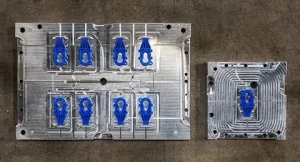We’re living in a world increasingly driven by connected devices. The Internet of Things (IoT) transforms how we live and work, from smart homes to industrial automation. But for these devices to truly thrive, they need reliable and seamless connectivity. That’s where SIM IoT comes in, acting as the silent hero powering the smart revolution.
How Does SIM IoT Differ from Traditional SIM Cards?
Think of a SIM IoT as a specialized SIM card designed specifically for IoT devices. Unlike the SIM card in your phone, which prioritizes voice calls and high-bandwidth data, a SIM IoT focuses on low-power, consistent data transmission. It’s built for devices that need to send and receive small amounts of data reliably, often in remote or challenging environments.
These SIMs are designed for longevity and durability, which are crucial for devices deployed for years without human intervention. They also offer enhanced security features to protect sensitive data transmitted by IoT devices.
Types of IoT SIMs: eSIM, MFF2, Industrial SIMs
The world of IoT SIMs isn’t one-size-fits-all. Here are a few key types:
- eSIM (Embedded SIM): These are soldered directly onto the device’s circuit board, eliminating the need for a physical SIM card slot. They offer flexibility in switching network providers remotely and are ideal for compact devices.
- MFF2 (Machine-to-Machine Form Factor 2): These are small, ruggedized SIM cards designed for harsh environments. They’re resistant to temperature extremes, vibrations, and humidity, making them perfect for industrial applications.
- Industrial SIMs: Built for durability, these SIMS are made to withstand harsh environments and have a longer lifespan than standard SIMs. They are used in places where standard SIMs would fail.
Top Applications of IoT SIMs
SIM IoTs are powering a wide range of applications across various industries:
- Smart Meters enable real-time energy consumption monitoring, allowing utilities to optimize grid management and improve efficiency.
- Fleet Tracking: They provide precise location data for vehicles and assets, helping businesses optimize routes, reduce fuel consumption, and improve security.
- Healthcare: They enable remote patient monitoring, allowing healthcare providers to track vital signs and provide timely interventions.
- Agriculture: SIM IoTs’ sensors track soil moisture and weather conditions, helping farmers optimize irrigation and fertilization.
- Smart Cities: These SIMs help with power traffic monitoring, air quality sensors, and other city-wide applications.
Security Considerations for IoT SIMs
Security is paramount in IoT deployments. SIM IoTs offer features like encrypted data transmission, secure authentication, and private APNs to protect against cyber threats. Choosing a provider that prioritizes security and offers robust security features is crucial.
Choosing the Right SIM for Your IoT Deployment
Selecting the right SIM IoT involves considering several factors:
- Data Usage: Estimate your device’s needs and choose a plan with appropriate data allowances.
- Coverage: Ensure the provider offers reliable coverage in your deployment area.
- Environmental Conditions: Select a SIM card that can withstand the environmental conditions of your deployment.
- Security Requirements: Choose a provider that offers robust security features.
- Scalability: Consider your future growth and choose a plan to accommodate your expanding needs.
Final Thoughts
SIM IoTs are the unsung heroes of the smart revolution, enabling seamless connectivity for many devices. As IoT continues to evolve, we can expect to see even more innovative applications powered by these essential components. The future of IoT connectivity is bright, and SIM IoTs will continue to play a crucial role in shaping it.





